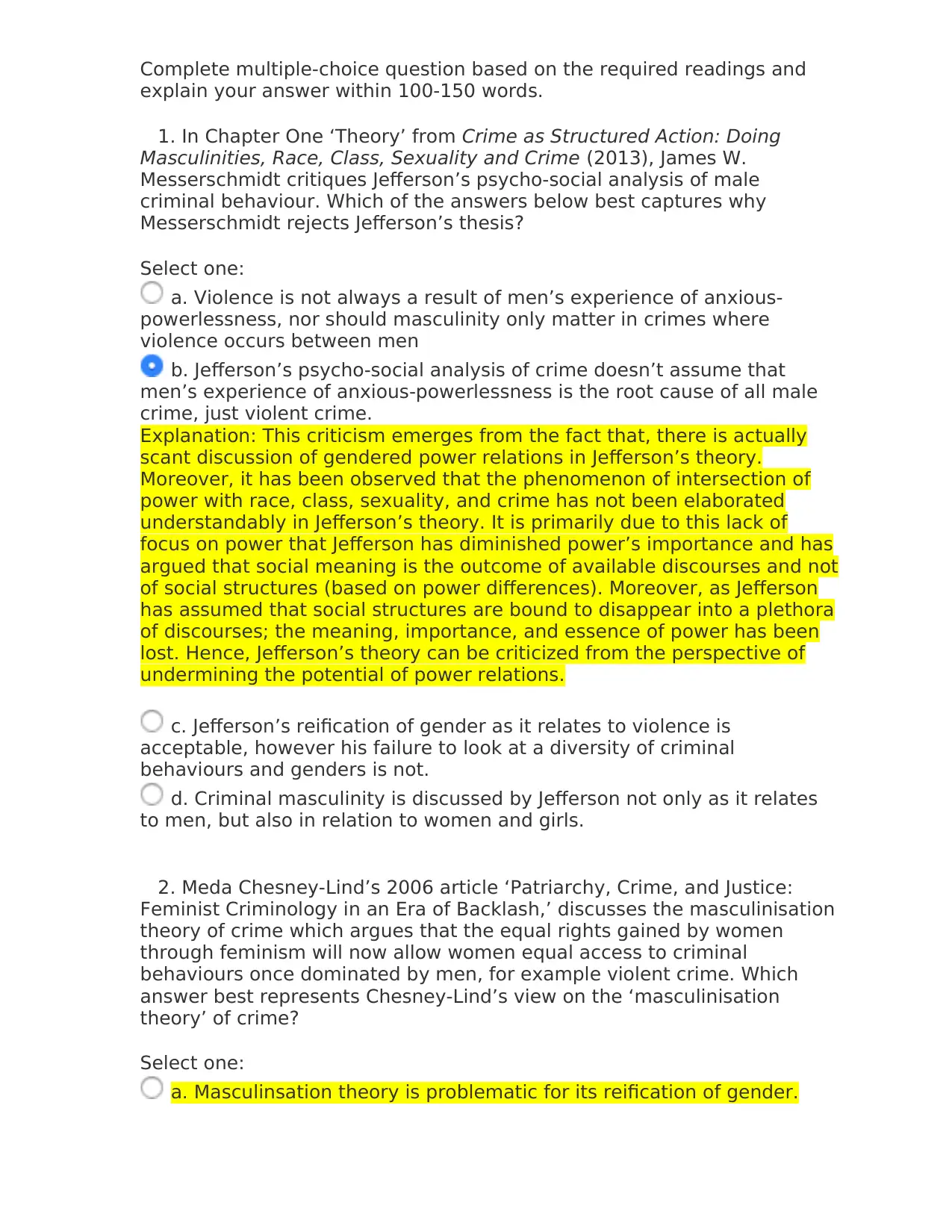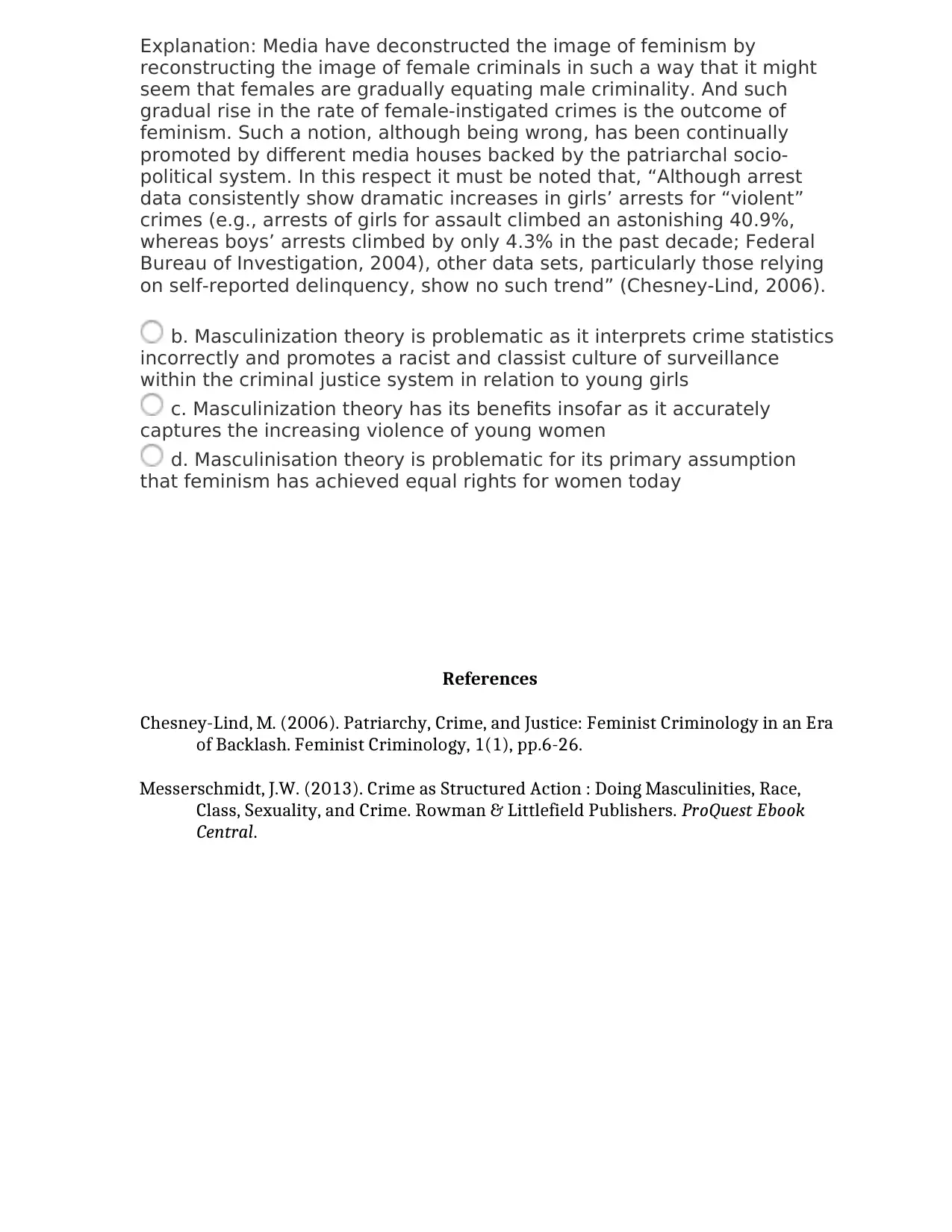Criminology Homework: Analyzing Gender and Crime Theories (2024)
VerifiedAdded on 2020/03/04
|2
|723
|204
Homework Assignment
AI Summary
This homework assignment delves into key concepts in criminology, focusing on the theories of James W. Messerschmidt and Meda Chesney-Lind. The assignment presents multiple-choice questions based on required readings, requiring students to select the best answer and provide concise explanations. The first question examines Messerschmidt's critique of Jefferson's psycho-social analysis of male criminal behavior, emphasizing the significance of power dynamics and intersectionality. The second question explores Chesney-Lind's perspective on the 'masculinization theory' of crime, which addresses the potential for equal access to criminal behaviors for women. The provided explanations for each answer demonstrate an understanding of the theories and their critiques, referencing the provided readings to support the analysis. This assignment offers a comprehensive overview of gender, crime, and the application of criminological theories.
1 out of 2


![[object Object]](/_next/static/media/star-bottom.7253800d.svg)